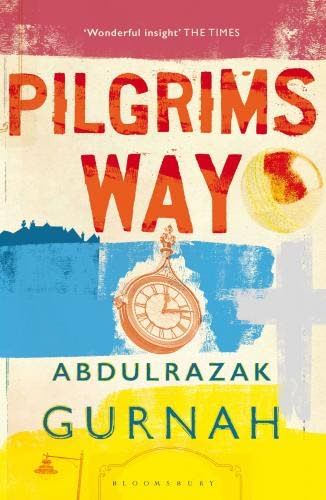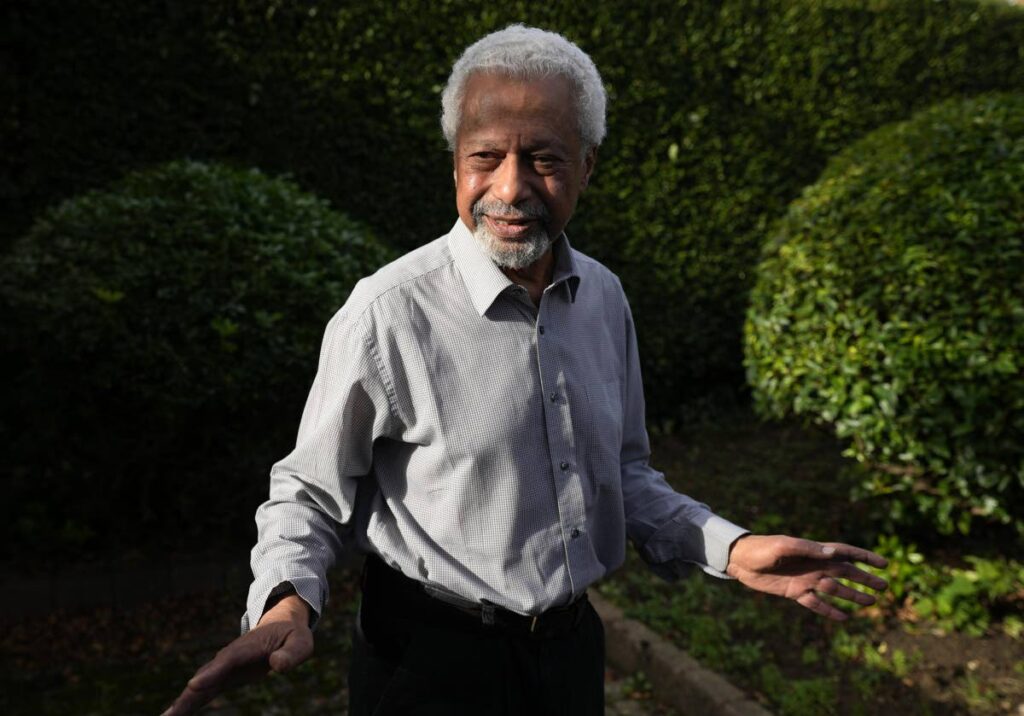Pilgrim's Way peels away life for West Indians in England

When Abdulrazak Gurnah won the Nobel Prize for literature this year, Alexandra Pringle, his longstanding executive publisher at Bloomsbury, felt it was about time the Tanzanian author, born in Zanzibar, received the literary recognition he deserved.
She thought his latest book, Afterlives, published in 2020, was his best novel to date. An historical novel about the brutality of German colonialism in east Africa, it might have been the book that tipped the scales in Gurnah’s favour for this year’s Nobel Prize in Literature.
Gurnah’s novels focus on colonialism, racism and xenophobia, timeless subjects that feel particularly relevant in this era of displaced immigrants fleeing from war-torn Syria and the political and economic chaos of Central America or places like Venezuela.
This certainly seems to be the year for recognising both the plight of immigrants and the contributions of immigrant writers to international literature.
At 18, Gurnah left Zanzibar during the 1964 revolution to live in England.
Then there’s David Diop, who won this year’s International Booker Prize with At Night All Blood is Black, a moving, horrific novel about colonialism and its impact on cultural identity seen through the eyes of a Senegalese man fighting for the French in World War I.
For this review, I chose Gurnah’s novel Pilgrim’s Way because of its West Indian connection. Like all Gurnah novels, Pilgrim’s Way peels away layers of emotional and personal boundaries immigrants experience.
Pilgrim’s Way demonstrates Gurnah’s remarkable restraint in presenting his characters’ stories. He is a master of that old piece of writing advice, “Show, don’t tell.” Gurnah shows his characters’ complex lives and feelings without telling the reader what to feel or think. This evokes empathy while allowing readers to experience, however vicariously, the conflicts and ambiguity immigrants go through in their conflicted lives.

Gurnah’s immigrants grapple with identity in a new land they originally imagined as the perfect escape. They are sure migration will better their lives. But Daud, the protagonist of Pilgrim’s Way, finds prejudice and hatred in England. Just walking home can evoke great angst and danger as resentful, racist people taunt and physically threaten him. His new life is difficult and demeaning.
Daud’s quest to escape from his past, as well as his unpleasant present, often cause him to reimagine his childhood. When he conjures up nostalgic moments readers will first wonder why he left his country and a near-perfect life, but brutal honesty quickly surfaces, shoving idealised, false images of the past into their proper place. In truth, Daud migrated to escape hardships and in search of better.
Nearly every scene in Pilgrim’s Way creates a new path for him, a new emotional boundary to cross. When he arrives in England, he goes to a pub to escape his relentless loneliness. Instead, he finds prejudice and danger. He finds nothing in common with those he works with either. Everywhere he turns, he is an outcast.
Daud’s obsession with the West Indies cricket team weaves its way throughout the story. Michael Holding’s bowling and Clive Lloyd’s leadership inspire him and feed his daydreams of revenge. Daud sees the West Indies team as a metaphor for not only beating, but punishing colonialism, and constantly taps into that fantasy.
Like many immigrants, Daud works at a menial job most people would not take. But that does not earn him respect. Gurnah’s descriptions of his work as an operating theatre orderly presents a vivid picture of an immigrant struggling to maintain a sense of dignity in a thankless, nasty job.
Lonely, Daud seeks companionship and meets Catherine, a white British nurse. He fumbles for ways to express culturally appropriate behaviour and lies about his past to elevate his self-worth. Catherine is horrified by the squalid conditions he lives in and irritated by what she perceives as his lack of ambition.
Their relationship develops into a cruel game of its own, juxtaposed quite cleverly with the cricket matches Daud follows obsessively.
He writes letters in his head to Catherine, as a way of expressing feelings he can’t articulate. They are a substitute for the letters he never writes home.
Catherine’s relationship to Daud is complex. He satisfies her curiosity and presents an opportunity for her to challenge her controlling parents. When strange men and her friends chastise her for going out with a black man, she becomes self-righteous and pretends to be open-minded, but she is really just playing her own game, seeking to win independence from those who control her.
For Daud, life is defined by cricket and relationship games. He has been in England five years, and life is not becoming easier or better. He is still hopelessly stuck between two cultures, sliding in and out of truth and fantasy. He feels guilty about leaving his country, yet cannot confess how he has misjudged the country he thought would bring opportunities.
He knows that living in England is a sellout to his country’s colonial past, and yet as bad as life is emotionally and economically for him, it is at least on par – and perhaps even better than life where he came from. He straddles both cultures now. He cannot reconcile himself with his past or envision a future in this new land where it is impossible to make good friends.
Most interesting is Daud’s white, British friend Lloyd, who is the antithesis of his hero, West Indian cricketer Clive Lloyd. The friend Lloyd pretends to be brave and loyal, but he plays his own games, hiding vital information about himself from Daud. He pretends to be accepting, but a bitter fight with another one of Daud’s friends exposes his racism.
In the end of Pilgrim's Way, Daud has an epiphany about immigrants. He sees them as pilgrims traveling to unknown places throughout history as they seek a higher level of existence. They end up trapped between two cultures.
Gurnah’s books are not action-packed, plot-driven novels. They are character-driven novels that encourage deep thought. As an immigrant writer, Gurnah explores self-identity in those who must determine who they are when they cross emotional and physical borders sometimes by choice and sometimes as displaced people. Gurnah’s novels define soul-searching on a whole new level.

Comments
"Pilgrim’s Way peels away life for West Indians in England"